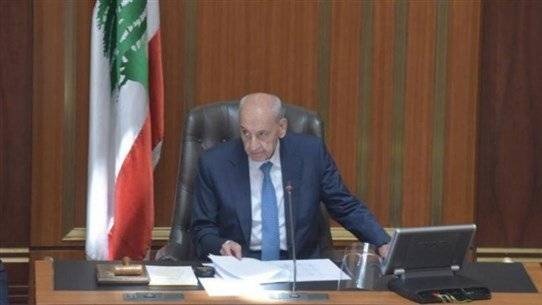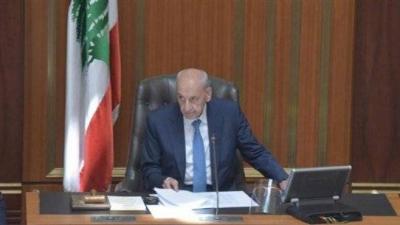All eyes are on the Parliament today to determine the fate of the second session to elect the President of the Republic, following the failure of the first session held on September 29, which could not yield a result as the contest took place between opposition candidate MP Michel Moawad, blank votes, and various other names. Many questions can be raised about this session and its expectations, including: Will the quorum be met? Which factions and forces might participate or be absent, especially after the "Strong Lebanon" bloc and the "Free Patriotic Movement" decided to boycott the session in protest against the date, which coincides with the anniversary of the October 13, 1990 operation against General Michel Aoun? Is there truly an intention to elect a President while some are still drafting and proposing papers regarding the program of the upcoming president, the latest being the document announced by the head of the "Free Patriotic Movement," MP Gebran Bassil, who has begun discussions about it with various political parties? Has the consensus mentioned by Speaker Nabih Berri in the first session been achieved through meetings and communications he conducts publicly and away from the media? Will the scenario of the first session repeat itself with the competition between blank votes and opposition candidate MP Michel Moawad? Especially since no statement from the "Change" deputies or their sources indicates a shift in their position, which was reflected in their vote for Salim Edde in the first session, while intensive communications are ongoing with other independent deputies and the "Moderation" bloc who voted in favor of "Lebanon" in the first session, and there are those who are closely connected with them urging them to take a stand, emerge from ambiguity, choose a name, and vote for it. Is there a link between the presidential issue and the maritime demarcation agreement recently reached with the Israeli occupying entity, which is expected to be implemented in the coming days? What about the timing of the invitations between the Lebanese and Iraqi parliaments? Are the conditions and circumstances similar, especially since the Iraqi parliament has been trying to elect a president for its country for a year after early parliamentary elections were held in Iraq on October 10, 2021, under pressure from popular protests rejecting the corruption of the political class and the deterioration of the country's infrastructure in the fall of 2019?
In an attempt to answer some of these questions, sources following the situation expect that the quorum for today's session will not be met, noting that the absence of deputies from the "Strong Lebanon" bloc alone is not sufficient to disrupt it. This means there might be others who express solidarity with them or who are absent for various reasons, including deputies outside the country, indicating that the political quorum for electing a President has not yet been achieved.
Despite previous presidential experiences indicating that Lebanon relies on an external "friend" in this matter and that calls have been made to interpret the tripartite Saudi-French-American statement regarding Lebanon—which emphasized the need to "elect a president who can unite the Lebanese people and work with regional and international actors to overcome the current crisis"—there are still expectations that the country may enter a presidential vacuum. This may later lead to the proposal of a consensus candidate, possibly Army Commander General Joseph Aoun.
On the other hand, opposition sources believe that there may have been a harmony among American, French, and Iranian interests that led to the maritime demarcation agreement, but this does not have any implications for the presidential issue unless one of the parties intends to exploit this situation to impose a certain reality, as happened after the July 2006 aggression and the issuance of resolution 1701, which halted military actions against Israel and consequently reduced Israeli interference in Lebanese affairs.
These same sources recall what happened internally on May 7, 2008, and the subsequent Doha Agreement, warning that there may be a premeditated intention to exploit the post-demarcation situation in a manner that would be more disastrous and dangerous than what was seen in the Doha Agreement concerning the Taif Accord and the diverse structure of Lebanon. The opposition sources stress that the presidential issue remains a purely internal Lebanese matter, with no foreign involvement except what we allow, and thus the ball is in the court of the political forces. They expect that the outcome of today's session will hinge between blank votes and a quorum disruption by the opposing team led by Hezbollah, amid skepticism regarding its silence on the prolonged and seething disagreements among its allies, which may potentially indicate something brewing.
Lastly, it is worth noting that there are indications of the preparation of a study by constitutional experts in Lebanon and France, aiming to prove the unconstitutionality of requiring two-thirds of the total number of deputies for a quorum in electoral sessions. It is known that Speaker Nabih Berri confirmed in the first session that the quorum for the presidential election sessions is always two-thirds (i.e., 86 deputies), and this interpretation is upheld by the parliamentary council. Therefore, today's session is considered a new one, and accordingly, the quorum is two-thirds. A candidate's success in the first round requires two-thirds of the votes; if they do not achieve this percentage but the quorum is met for a second round or more, success for the candidate requires a simple majority of half plus one, i.e., 65 votes, provided that at least 86 deputies are present in the hall to open the second voting round. This was the case during Michel Aoun's election in 2016 when he received 84 votes in the first round, leading to a second and third round due to counting errors, and eventually won with 83 votes... and, of course, the quorum was met, surpassing the presence of over 86 deputies in the hall.




